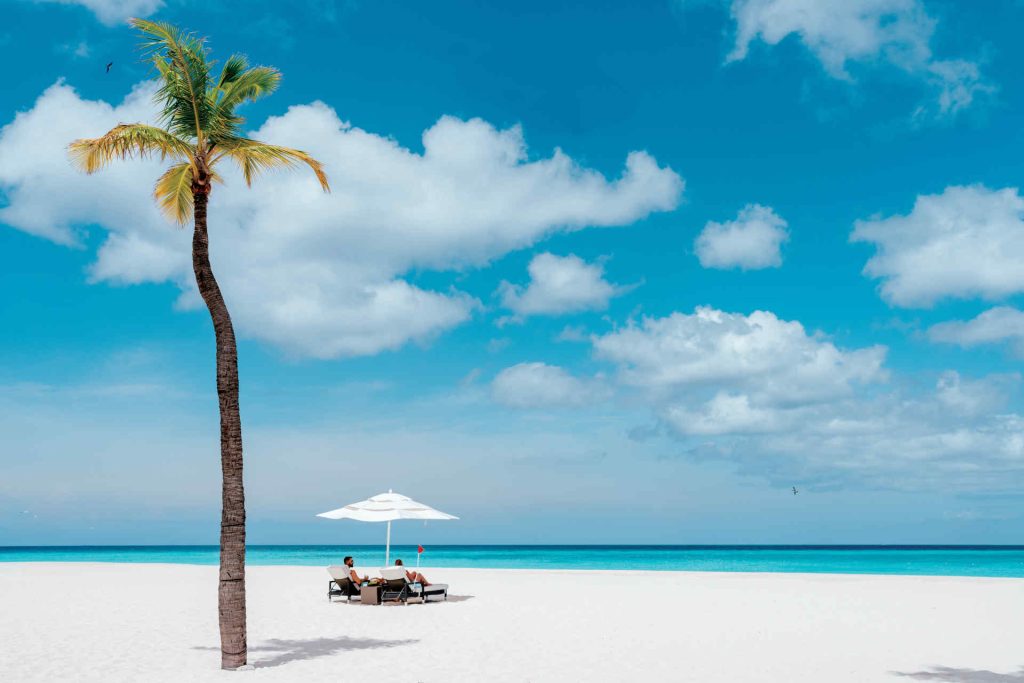
“Environmental protection is not an option. It is a necessity—and even an economic advantage.”
Ewald Biemans, founder of Bucuti & Tara Beach Resort
Genusspunkt presents a forward-looking project that shows how social, ecological, and economic responsibility can be successfully combined in the hospitality industry.
The Bucuti & Tara Resort: Why the world's most sustainable hotel is run by an Austrian – and what steps are now necessary in Europe: When Ewald Biemans came to Aruba in 1969, the island was a paradise – but unprepared for the impact of growing tourism. “I grew up on a farm with an awareness of nature and resources. Becoming a hotelier didn't change that,” Biemans said in an interview with Genusspunkt.
He observed how mountains of trash piled up on the roadsides, how fossil fuels became increasingly expensive – and how guests, operators, and the government alike failed to live up to their responsibilities. Concern turned into vision, and vision turned into an entire system. The Bucuti & Tara Beach Resort currently holds several leading sustainability certifications, including Travelife Gold and LEED Gold.
The adults-only resort on Eagle Beach is a showcase for systemic sustainability management. Biemans began installing solar panels for hot water production back in the 1980s. Today, exercise equipment in the gym generates electricity, climate-neutral shuttle services transport guests, and motion detectors automatically switch off air conditioning systems.
“There is no plan B for the hotel industry – those who don't move step by step toward net zero will have a hard time.”
Ewald Biemans, founder of Bucuti & Tara Beach Resort
For Ewald Biemans, one thing is clear: hotels that are not climate neutral in 10 years' time will have a problem – not only legally, but also economically. “Operating costs will skyrocket if we don't act today. Certifications such as Green Globe or LEED are not a matter of prestige – they are a guideline.”
The Bucuti & Tara Resort proves that sustainability is not an obstacle to excellence, but its foundation. Biemans has not only built a hotel – he has created a model that is considered a global benchmark. It is time for hoteliers and restaurateurs in Europe to take this benchmark seriously.

There is a tension between digital progress and emotional hospitality that is redefining the restaurant industry. AI, automation, and data-based processes are changing not only workflows, but also attitudes, communication, and expectations. What was once considered a gimmick is now becoming a strategic necessity. And perhaps the most important question of our time: How can humans remain relevant in a world that is becoming increasingly digital?
The Austrian brand Kumanu shows how circular thinking can be applied in everyday life—and makes doing without plastic both practical and aesthetic. With its “Frischefritz” beeswax wraps and ‘Krümelkarl’ and “Pausenpaul” bread and snack bags, it provides the industry with a well-thought-out solution for keeping food fresh for longer – without any plastic or aluminum foil.
The products are made from GOTS-certified organic cotton, organic beeswax from Austria and Germany, and tree resin from traditional pitch production – a combination that has an antibacterial effect and guarantees natural durability.
Leonardo Hotels is expanding its commitment and turning World Cleanup Day 2025 into a European movement: Employees from 140 hotels in 12 countries are participating in cleanup campaigns – from Berlin to Bucharest, from London to Rome. Instead of a single day, the period has been extended to ten days to allow as many teams as possible to participate.


Genusspunkt presents a forward-looking project that shows how social, ecological, and economic responsibility can be successfully combined in the hospitality industry.